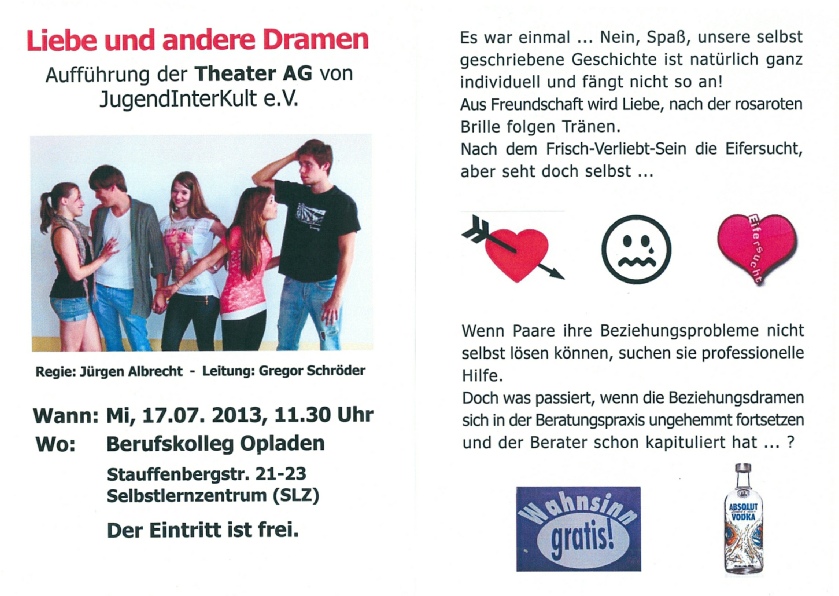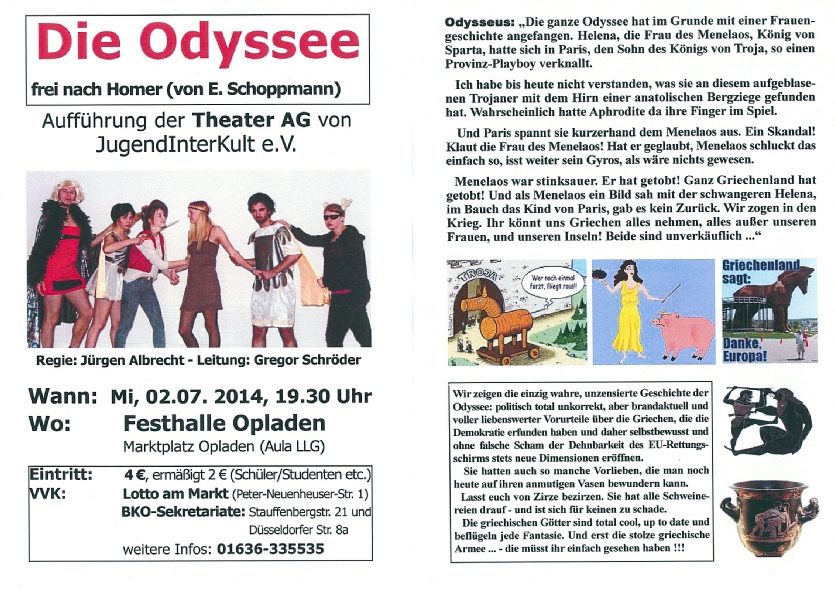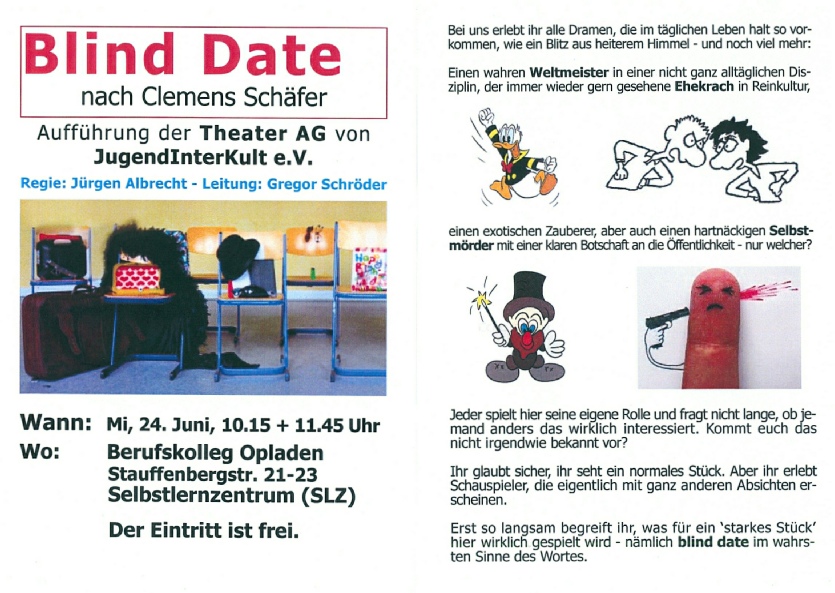




JIK JugendInterKult e.V.
Gregor Schröder
Tel + 49 1636 33 55 35
info(at)jugendinterkult.de
Am Köppekreuz 21
53225 Bonn


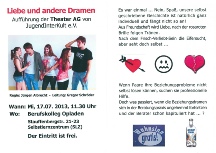
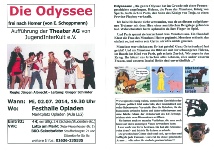
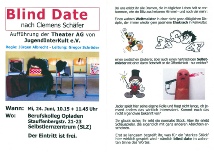
Our theatre projects
Foundations and educational goals of our theatre work
Since 2012, JIK has been working together with the Cologne theatre educationalist, actor and director Jürgen Albrecht in Leverkusen, who together with the participants (participants are 15-
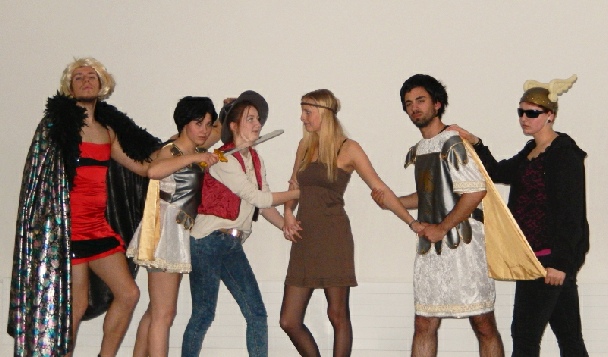
The participants should have fun experimenting with something and presenting to others what they have created themselves. Of course, they should also be willing to deal with their own personality, their feelings, to allow space for self-
In the case of the impromptu game, the participants take on different roles and play scenes in any given emotional state. The plot which is developed together, as protagonist and antagonist, mirror and auxiliary self, evolves from impulses and joy and makes wishes as well as needs visible and tangible. They then talk about their individual feelings and similar experiences of their own. This results in a gain in emotional freedom, creative activity and knowledge.
When playing theatre, they have to put themselves in the situation of people with different social background, age, character shortcomings, lack of self-
In Leverkusen, the following three completely different pieces have so far been rehearsed for 9 months and finally performed (supported among others by the civic initiative Aktion Mensch).
1. Piece "Love and Other Dramas" (2013)
At the request of the group, the participants were first asked to write sketches on the subject of "love and relationship problems". In the end, these were loosely joined together by a story framework, since the piece mainly takes place in the practice of a "relationship therapist".
Due to the absurdities of the relationship dramas and the obstinacy and resistance to advice of the couples, which come to him, the therapist ultimately becomes desperate and can only hit the bottle. His patients do not want to change at all, but rather want to go ahead with their arguments in front of the therapist Dr. Slibowitz. When he also falls in love with a client on top of it all, the chaos is perfect. In the meantime, appropriate scenes of classical literature were also included, all of which are the subject of the often absurd moments of love between the sexes.
The piece was then extremely successfully supported with choreographed dance and vocal performance inserts, so that it had to be performed twice as a result of the great audience response.
2. Piece „The Odyssey“ – based on a free adaptation of Homer from E. Schoppmann (2014)
This time, the newly composed group chose a classic work of world literature, Homer's Odyssey, but very free and parodistically designed by Edzard Schoppmann who updated the text, made it easier by means of many original director incidents and strongly based it on body theatre and slapstick elements. This elaborate stage production was staged in a large theatre and highly professionally stage-
He built in many more absurd-
The forced stay of the Greeks at the sorceress Circe (represented as a "transvestite"), was transferred to the red light district, whereby in addition to Odysseus 1, his fictional old ego (Odysseus 2) also appeared, this as such led to flashbacks and reflections between them – also on the meaning and purpose of wars. Remarkably funny was also the scene when the Trojans saw the wooden horse of the Greeks and performed a carnival-
The scene with the one-
3. Piece "Blind Date" adapted from Clemens Schäfer (2015)
The charm of the piece selected by the next group is based on the fact that the actors on the stage play the audience sitting in the theatre and wonders why the performance does not begin.
They pass the time with growing uncertainty, with impatience; anger and boredom, each in his/her own way. One stares at himself/herself, looks at the clock, falls asleep, begins to use the surprising time remaining. The stage, which remains empty, becomes the platform for self-
In his despair he shows of his "arts" as a director of the Flea Circus, whereby his "fleas" become independent and all fall into ecstatic convulsions due to fear; The world’s best onion cutter presents his modest arts – scenes of egocentric people, who have completely lost empathy for others – as in real life, in which "theatre" is often played more than enough. Thus the audience is provided with a mirror of their conduct in the theatre, but also in their everyday life. This time, several artistic inserts were among others installed, in order to underline the seemingly unrealistic effects of these scenes. Two successive performances also had to be held in this case, as a result of the huge crowd of spectators.
New theatre group planned
In the autumn of 2016, a new theatre group is planned, which again under the direction of Jürgen Albrecht, will select a piece, appropriately rework it, as well as arrange for its setting and performance, in a professional manner (supported among others by the civic initiative Aktion Mensch).
